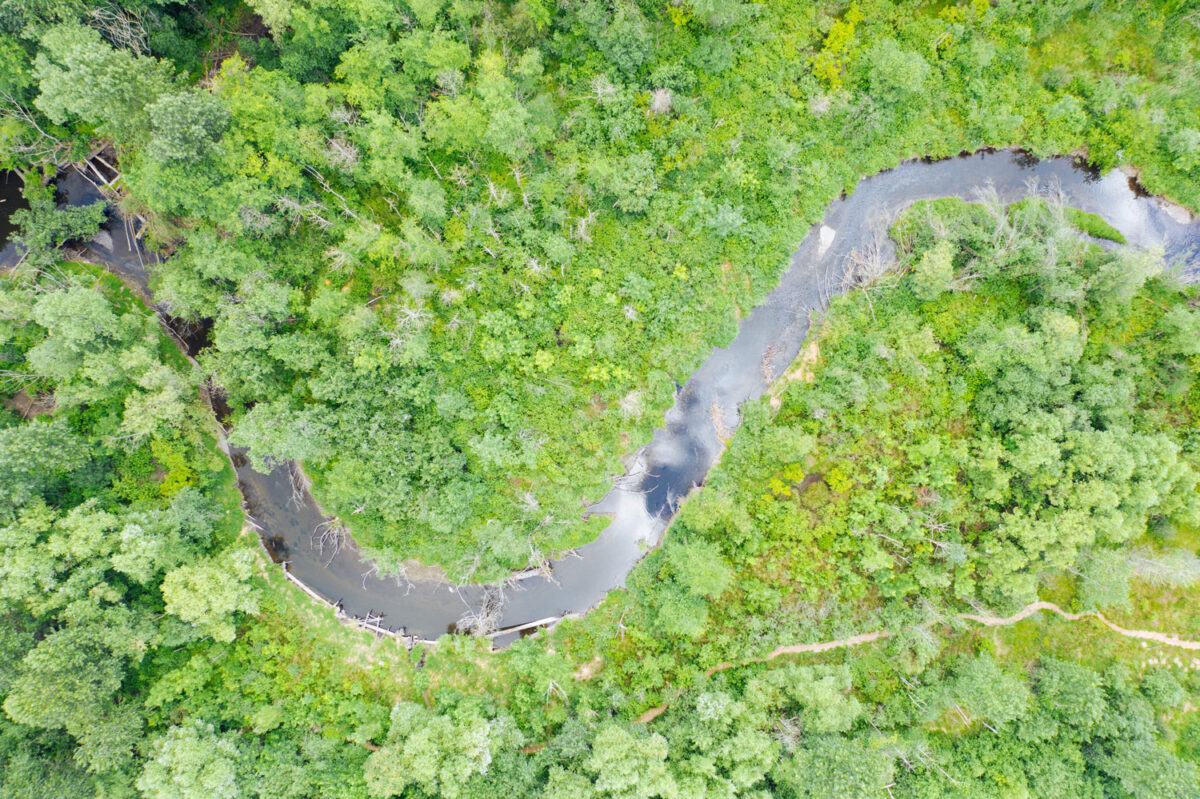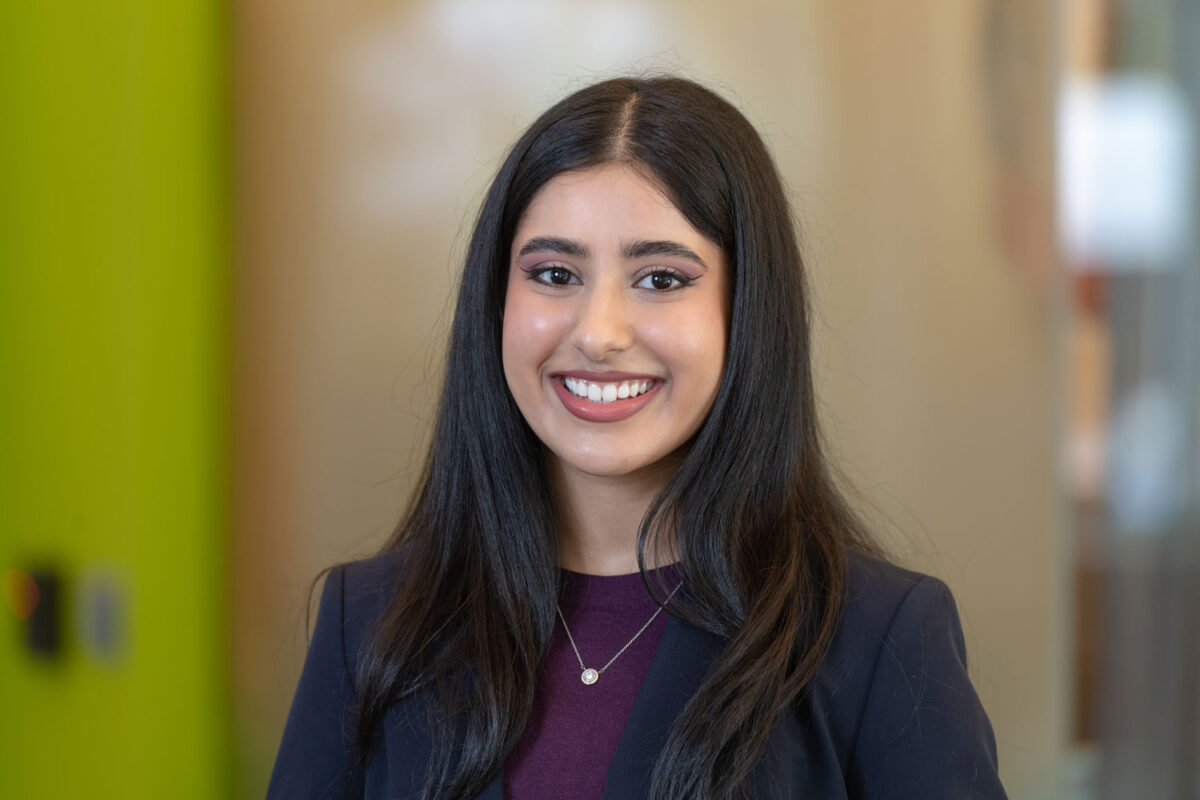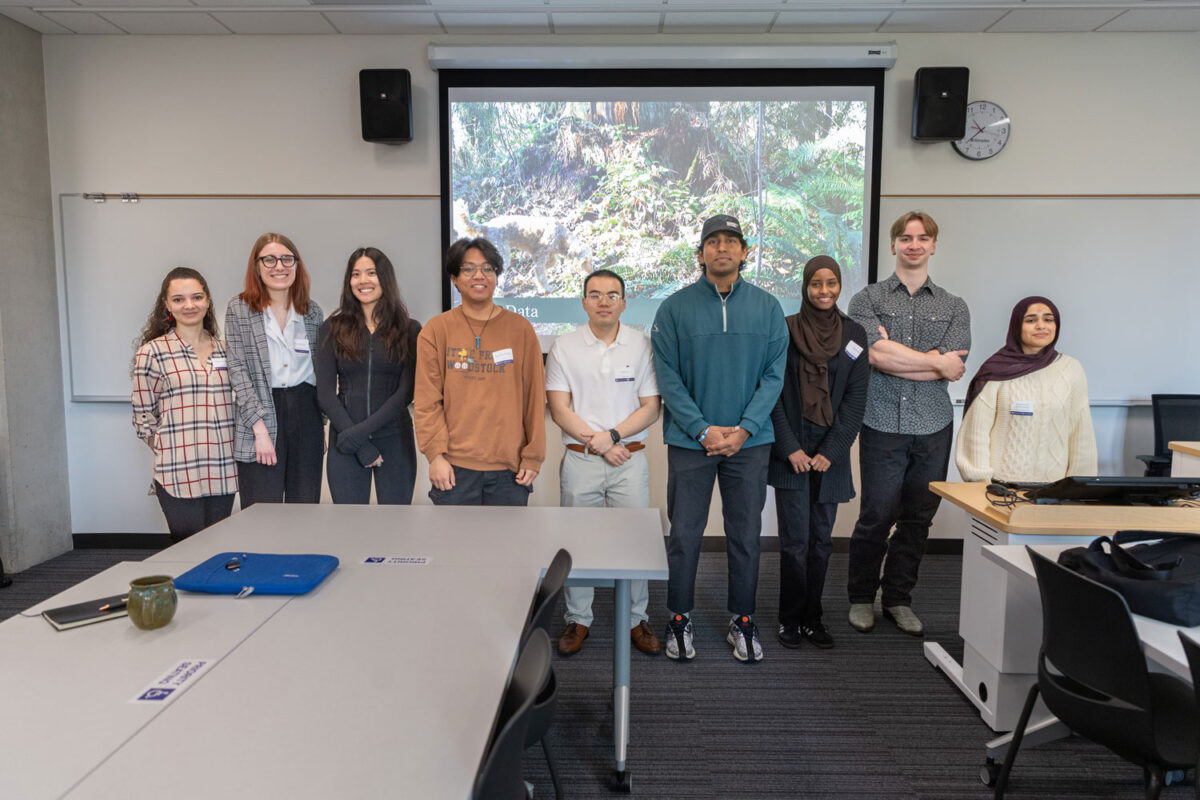Victoria Breckwich Vasquez leads class. (Marc Studer photo)
The assignment that students created for themselves in their Latinx Community Engagement and Assessment course was to identify health service priorities for this community. The result of their work will inform a health care task force at UW Bothell.

That wasn’t the entire purpose of the course. It’s how the research was developed, organized and implemented that distinguished the class.
In the process of compiling a report, the students formed a support system, engaged with a community partner, shared their knowledge and connected learning to life.
“It’s a very different type of class, very experiential. It’s about the person as much as the content,” said co-instructor Victoria Breckwich Vasquez, assistant professor in the School of Nursing & Health Studies. “Their voices are important and vital.”
At the same time, students learned skills of qualitative and quantitative analysis. “Research skills are important in the marketplace, and I would hope these skills open up opportunities for them in the future,” Breckwich Vasquez said.
The 13 students in the summer class met once a week for seven hours. They learned about self-care – physical, mental and spiritual health as well as good habits in eating, sleeping and monitoring stress – with a focus on women from Latin cultures. For example, Breckwich Vasquez said, "it's not the norm in our culture to be open with a health care provider."
This was the second year for the course, which is part of the school's Latina Health Equity Initiative that integrates University practices with the goal of improving health care for Latin-identified people in the area. A significant part of the initiative is “building a more robust pathway for underrepresented students to have access to higher education,” said Claire Peinado, UW Bothell’s director of integrated learning and a co-instructor.
The community partner is the Latino Educational Training Institute, a Lynnwood advocacy and education organization. Class members also were scheduled to take part in several conferences, including the Aug. 18 Alianza Youth Summit at Central Washington University.
“This is one of the best examples we have of connected learning in action, meaning the relationship and network that’s being built in this class is one of the primary goals,” Peinado said.
UW Bothell does not currently have a health center, but as a task force looks at the options, the class focused on the need for culturally relevant services on campus for students of color.
“Everyone comes from a different background, and we all need different services,” said Sandy Centeno (health studies ’18) who plans to take that perspective into her work in health care.
The class developed a sense of family as they discussed issues such as “structural oppression, racism, sexism and misogyny. We were able to really be ourselves and express ourselves freely,” Centeno said.
Angelica Mendoza (media and communications studies ’19), the incoming Latinx Student Union president, took the class to become a better resource.
“My main goal is to be a voice for the Latinx community, so this really helped me build myself and opened my eyes to new ways of approaching problems that we face every single day,” said Mendoza who hopes to help change the image of the community in the media.


